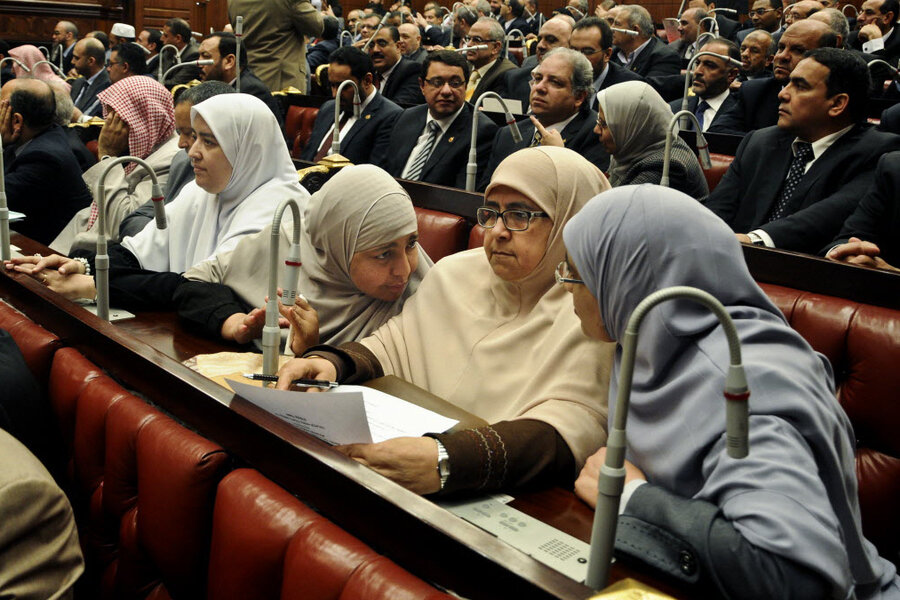Egypt's contentious constitution becomes law
Loading...
| Cairo
Egyptian President Mohamed Mursi signed into law a new constitution shaped by his Islamist allies, which he says will help end political turmoil and allow him to focus on fixing the fragile economy.
Anxiety about a deepening political and economic crisis has gripped Egypt in past weeks, with many people rushing to buy dollars and take out their savings from banks. The government has imposed new restrictions to reduce capital flight.
The new charter, which the secularist opposition says betrays Egypt's 2011 revolution by dangerously mixing religion and politics, has polarised the Arab world's most populous nation and prompted occasionally violent protest on the streets.
Results announced on Tuesday showed Egyptians had approved the text with about 64 percent of the vote, paving the way for a new parliamentary election in about two months.
The win in the referendum is the Islamists' third straight electoral victory since veteran autocrat Hosni Mubarak was toppled in 2011, following parliamentary elections last year and the presidential vote that brought Mursi to power this year.
Mursi's government, which has accused opponents of damaging the economy by prolonging political upheaval, now faces the tough task of building a broad consensus as it prepares to impose unpopular austerity measures to prop up the economy.
The presidency said on Wednesday that Mursi had signed a decree enforcing the charter overnight after the official announcement of the result of the referendum approving the basic law, Egypt's first constitution since Mubarak's overthrow.
The opposition has condemned the new basic law as too Islamist, saying it could allow clerics to intervene in the lawmaking process and leave minority groups without proper legal protection. It also said the referendum was marred by widespread electoral violations.
Nevertheless, major opposition groups have not called for new protests, suggesting that weeks of civil unrest over the constitution may be subsiding now that it has passed.
Mursi, catapulted into power by his Islamist allies this year, believes adopting the text quickly and holding the vote for a permanent new parliament will help end a protracted period of turmoil and uncertainty that has wrecked the economy.
Mursi's government argues the constitution offers enough protection to all groups, and that many Egyptians are fed up with street protests that have prevented a return to normality and distracted the government from focusing on the economy.
The constitution gives Egypt's upper house of parliament, which is dominated by Islamists, full legislative powers until a vote for a new lower house is held. The chamber convened on Wednesday for the first time since the constitution's adoption.
CONCERNS
The government has begun a series of meetings with businessmen, trade unions, non-governmental organisations and other groups to persuade them of the need for tax increases and spending cuts to resolve the country's financial crisis.
Mursi has committed to such austerity measures to receive loans from the International Monetary Fund.
While stressing the importance of political stability to heal the economy, Mursi's government has sought to play down economic woes and appealed for unity in the face of hardship.
"The government calls on the people not to worry about the country's economy," Parliamentary Affairs Minister Mohamed Mahsoub told the upper house in a speech.
"We are not facing an economic problem but a political one and it is affecting the economic situation. We therefore urge all groups, opponents and brothers, to achieve wide reconciliation and consensus."
Mursi is due to address the upper house on Saturday in a speech likely to be dominated by economic policy.
Sharpening people's concerns, the authorities imposed currency controls on Tuesday to prevent capital flight. Leaving or entering Egypt with more than $10,000 cash is now banned.
Al-Mal newspaper quoted Planning Minister Ashraf al-Araby as saying the government would not implement a series of planned tax increases until it completes a dialogue with different parts of society.
Adding to the government's long list of worries, Communications Minister Hany Mahmoud has resigned citing his "inability to adapt to the government's working culture".
The United States, which provides $1.3 billion a year in military aid plus other support to Egypt and sees it as a pillar of security in the Middle East, called on Egyptian politicians to bridge divisions and on all sides to reject violence.
"President Mursi, as the democratically elected leader of Egypt, has a special responsibility to move forward in a way that recognises the urgent need to bridge divisions," State Department spokesman Patrick Ventrell said.







